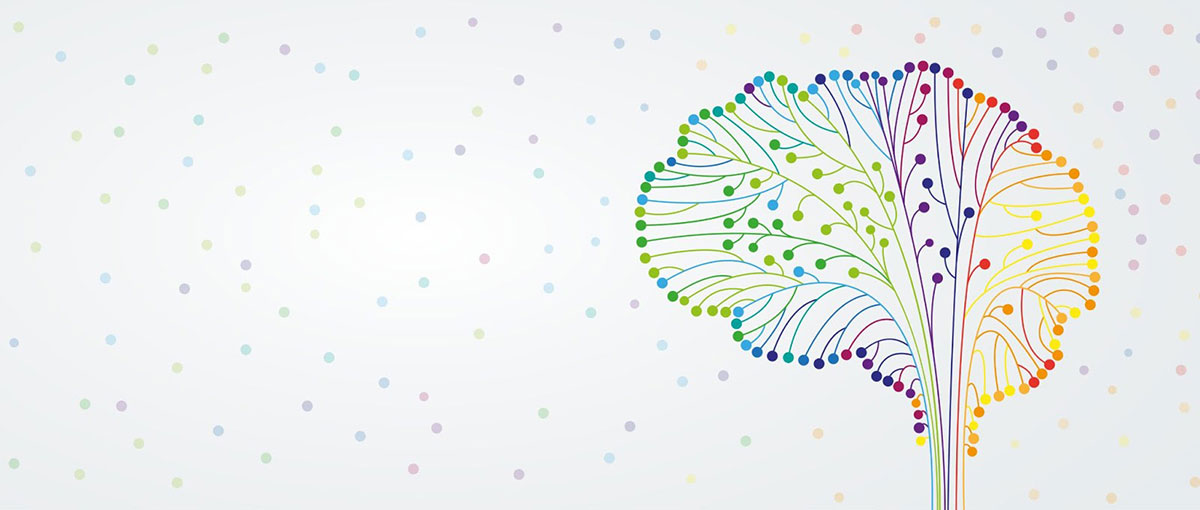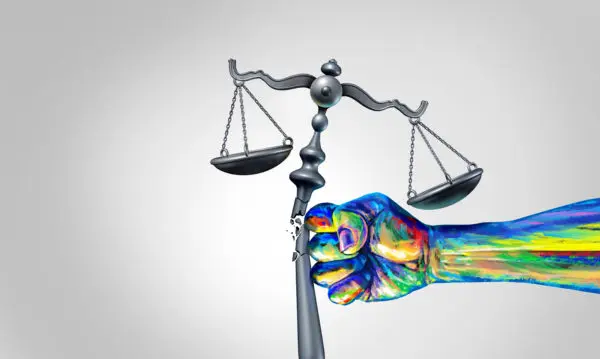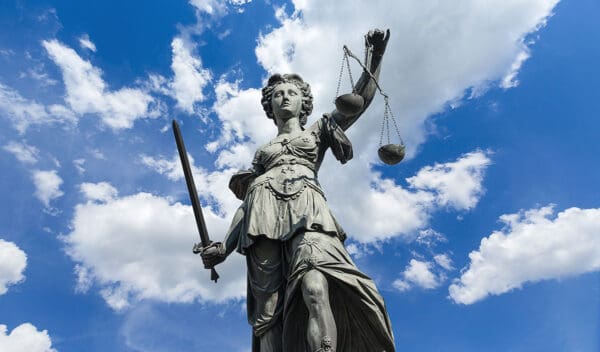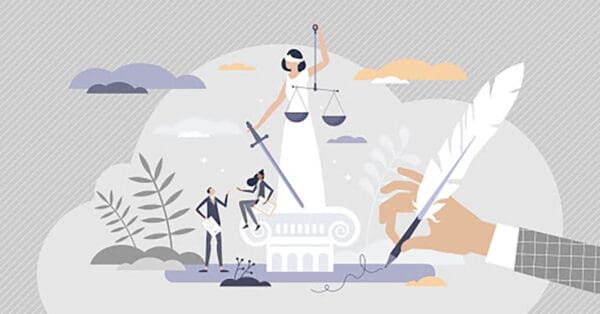Ibogaine is a powerful alkaloid extracted from the root bark of Tabernanthe iboga. The Pygmy people of Western Africa and the Bwiti people of Gabon have been using iboga for centuries for spiritual awakenings, visions, celebrations, and initiation rites, as well as for practical reasons such as hunting and staving off hunger, thirst, and fatigue.
Today, ibogaine is often used to treat opiate dependency, which can be notoriously difficult to break due to painful withdrawal symptoms and crippling depression and anxiety, all of which ibogaine has been shown to eliminate. Ibogaine is also known for its role in helping people overcome other substance use disorders and mental health conditions, and a growing number of people take ibogaine to deepen their consciousness or spiritual development.
Is Ibogaine Illegal?
Ibogaine legality varies around the world. Currently, ibogaine is a Schedule I substance in the United States, despite a handful of cities that have recently decriminalized possession of it. This means it is illegal and the most strict consequences are applied to charges related to ibogaine. Ibogaine is also illegal in France, Belgium, Sweden, Switzerland, Italy, Israel, Norway, Finland. There are also a small number of countries that have strict laws regarding ibogaine, such as the United Kingdom and Canada. A few countries have legitimized the use of ibogaine for medical reasons, such as New Zealand, but what about the rest of the world?
Laws surrounding ibogaine are either nonexistent or unspecific around the rest of the world. As a result, the ibogaine industry lacks sufficient regulation. Ibogaine providers — people who administer ibogaine to others — are often attracted to these countries where they can operate in treatment and retreat-like centers or clinics in a legal “grey” area. Currently, Mexico and Central America are the closest options for ibogaine treatment for American citizens. Ibogaine is unregulated throughout Mexico and Central America. These are the most popular countries for ibogaine treatment in the word. There are also some ibogaine treatment options in other unregulated countries in Europe, South Africa, and Southeast Asia.
For people who want to experience ibogaine treatment, location matters. Location will impact the cost and overall safety of the experience. Depending on the situation, a client’s family or support person may be involved in determining the location of ibogaine treatment — because they may be attending or helping finance the treatment.
This article will explore where ibogaine use is legal, why it’s illegal elsewhere, and what other options are available if you are looking for an ibogaine treatment center.
Why is Ibogaine Illegal?
There are several reasons why ibogaine remains illegal in a number of countries. One reason is the lack of clinical trials in human subjects. Lawmakers are concerned about ibogaine’s reported cardiotoxicity. Fatalities have occurred during some observational studies and throughout ibogaine’s history of use in western hemisphere treatment settings.
Another reason may be a lack of understanding about how ibogaine works due to misinformation in mainstream media. Some simply write off the unique neuropharmacological properties because the drug is also a psychedelic. Substance stigma is rampant in countries like America and there has been a particular stigma associated with psychedelics since the 1970s due to prohibition and political propaganda that have fueled public fear and opinion.
Brief History of Ibogaine Treatment Centers
From the 1960s to the early 1990s Howard Lotsof, along with a few other authors between the U.S. and the Netherlands, collected observational research on ibogaine treatment participants.
Lotsof ran a company called NDA International which sponsored treatments and research in Panama from 1994-1995 and also funded neurologist Deborah Mash’s research at a treatment center in St. Kitts for several years around the same time. Unfortunately, previously approved clinical trials were halted due to pharmaceutical lobbyists and legal conflicts between Mash and Lotsof would eventually shut down all the research funded by NDA International.
During this time in the United States, an underground culture of ibogaine providers worked out of hotel rooms and private homes. Perhaps due to the overwhelming sense that ibogaine was being rejected by mainstream society, many began to move to Mexico and countries where ibogaine was unregulated. From 2006 to 2014, the number of treatment centers around the world tripled, sparking what Brian Vastag a scientific journalist, called a “vast, uncontrolled experiment”.
Countries Ibogaine is Illegal
In the late 1960s, the World Health Assembly declared that ibogaine was a “substance likely to cause dependency or endanger human health.” This led to international shifts in ibogaine’s legal status. In 1970, ibogaine was placed on the anti-doping list for the International Olympics Committee and the International Cyclists Union due to its stimulant effects.
While a small number of countries have banned ibogaine, other countries such as Canada and Australia have created strict laws regulating access. For example, the United Kingdom has not placed a ban on possession but has banned the consumption of psychoactive substances since 2016. Hungary has a similar law that bans the distribution of psychoactive substances.
France
In the 1930s, chemists in France formulated a prescription medicine out of ibogaine hydrochloride (HCL) called Lamabarene that was prescribed for infectious disease, physical and mental stimulation, and depression. Later, the World Health Assembly declared ibogaine to be harmful and Lambarene was pulled from the shelves in 1966 when sales of ibogaine products were banned. In 2007, following an iboga-related fatality, France banned all species of plants that contain ibogaine, as well as the popular semi-synthetic Voacanga-derived ibogaine HCL.
Canada
Canada was once home to many ibogaine treatment centers. However, adverse events and several ibogaine products produced in Quebec raised red flags among Canada’s health officials. Further investigation resulted in more strict laws. In 2015, Canada cracked down on importing ibogaine and most providers closed their doors in 2017 when Canada scheduled ibogaine as a prescription drug. However, ibogaine isn’t an approved medication, so for a prescription to be written, all phases of clinical trials would need to occur and ibogaine would then need to be approved first.
Theoretically, through Health Canada’s special access program, illegal medications could be prescribed in life-threatening situations if other treatment modalities have failed. Unfortunately, according to one provider in Canada, multiple attempts have been made to apply this law to ibogaine treatment for severe substance dependence. But, these requests have only resulted in rejections and a statement that more research needs to occur before ibogaine treatment becomes a potential option.
United States
In the United States, the CIA studied ibogaine during MK-Ultra experiments related to mind control, but most of these studies remain classified. Despite the research of Lotsof and others, ibogaine was made illegal in 1967. The Controlled Substances Act of 1970 placed ibogaine as a Schedule I substance where it remains today. That hasn’t stopped ibogaine from being used in the United States, and there have been criminal charges brought upon people who have been caught with it.
Where is Ibogaine Legal?
On the other end of the spectrum are the few countries that see ibogaine as a medical treatment and have made laws allowing its use in certain medical situations.
South Africa
Information on South Africa’s prescription laws and ibogaine are scarce. However, ibogaine was reclassified as a schedule 6 controlled substance in 2016 and the licensing of a medical professional might allow someone to prescribe it. Unfortunately, shortly after the announcement that ibogaine was going to be reassigned to schedule 6, a fatality occurred under the care of an unlicensed provider. For now, the terms of ibogaine’s scheduling appear vague. However, theoretically, a medical professional may be able to work with ibogaine with appropriate approval. A quick internet search shows that there are some options for ibogaine treatment in South Africa, but it is unclear if they are licensed or unregulated options.
New Zealand
As of 2009, New Zealand appears to be the only country that has legalized ibogaine as a medical treatment. More specifically, ibogaine is a non-approved prescription medicine. It needs to be prescribed by a doctor for medical treatment, but its legal status allows treatment providers to work with other medical professionals, which may allow healthcare providers to collaborate on best practices and safety measures. As a result of the legality in New Zealand, the Multidisciplinary Advancement of Psychedelic Studies (MAPS) completed Phase 1 observational studies on ibogaine treatment for the use of opioid dependency in 2017.
Brazil
In 2016, the state of São Paulo granted permission for scientists to further research on ibogaine, publishing a statement that doctors and psychiatrists could legally work with ibogaine out of a hospital for clinical research. As of 2019, ibogaine still hasn’t been approved as a regulated pharmaceutical, but importing ibogaine for research and clinical research is approved. As a result, Brazil has become a popular place for clinical trials and providers who are doctors (like Dr. Bruno Chavez Rasmussen), running treatments out of hospitals in the name of research, with studies such as Phase 2 clinical trials on ibogaine and alcohol on the way.
Where is Ibogaine Unscheduled?
For now, the most common way to find ibogaine treatment is to locate a reputable and safe ibogaine treatment center with experienced and well-trained providers who work in a country where ibogaine is not explicitly illegal. While decriminalization efforts in the U.S. may open the doors for some use of ibogaine, treatment centers in unregulated countries are still the safest way to experience ibogaine.
Mexico
Mexico remains the largest hub for ibogaine providers. Its proximity to the United States makes it easily accessible for U.S. clientele. Ibogaine is unscheduled in Mexico, and some cities contain several ibogaine treatment centers, including San Pancho. Some ibogaine providers have programs where they pick up clients in Southern California and transport them over the Mexico border for treatment. There is a wide range of clinics in Mexico including long-standing, reputable centers, medical clinics, and luxury centers.
Unfortunately, there is always some risk associated with ibogaine treatment, and it is important to be aware that lack of regulation also means that there is a lack of accountability for ibogaine providers. There are many options in Mexico and one should always vet their providers carefully. Stories of fatalities in Mexico weave their way through the ibogaine industry every year with providers sometimes quickly leaving the country to avoid legal consequences.
Costa Rica
Ibogaine is unscheduled in Costa Rica. However, Costa Rica placed ibogaine under scrutiny in 2015 after a tourist’s autopsy showed traces of ibogaine around the same time that Kardashian money was being used to promote a new ibogaine center in Costa Rica.
We spoke to Rodrigo Martinez, a medical professional in Costa Rica, about the legal status of ibogaine in Costa Rica. Martinez talked about the amount of press ibogaine received in 2015 and how it caught the attention of lawmakers who then discussed scheduling it. During these discussions, the Ministry of Health visited the centers they could find and encouraged them to cease operations. This allegation seems to be true. Derek* ran an ibogaine center in Costa Rica in 2015 and describes packing up and relocating to Mexico after, “…our manager told us the Ministry of Health stopped by and wanted information on our clinic.”
Costa Rica never did schedule ibogaine and visits from the Ministry of Health have ceased. For now, ibogaine still exists in a legal grey area and some ibogaine providers are running treatment centers throughout the country. *name changed for anonymity
The Netherlands
Ibogaine is currently unscheduled in the Netherlands, which is known for having relaxed drug laws where some psychedelics are available in retail shops within certain cities. While they do not prohibit ibogaine and ibogaine treatment can be found, a fatality at an ibogaine center did lead to the imprisonment of a provider with an 8-year prison sentence. The court made a statement that the provider had experienced adverse medical events in the past and put people in danger despite knowing the risks of ibogaine. Sarah Glatt’s arrest and conviction have highlighted the risks ibogaine providers take in countries where ibogaine is unregulated.
Southeast Asia
Some countries in Southeast Asia have hosted providers on and off for years. Thailand and Cambodia are easily accessible for Australian, Chinese, and Russian clientele as well as attractive travel options for Europeans and Americans making them possible “international hubs” for ibogaine travel. However, Thailand and Cambodia are strict about work visas as well as drugs in general, and popular tourist areas often don’t have the proper medical infrastructure, such as a hospital that could handle an ibogaine-related emergency. On the island of Koh Phangnan in Thailand where there is no hospital, an Australian tourist died in a hotel room while undergoing ibogaine treatment in 2014. This is why access to medical care is essential when considering ibogaine treatment abroad.
It is worth noting that some countries in Asia such as the Philippines, Malaysia, Indonesia, and China still employ the death penalty for drug-related charges, including marijuana. Every once in a while, rumors of ibogaine treatment pop up from these countries. It is important to research local drug laws before making any decision about ibogaine treatment.
Where is Ibogaine Headed?
Ibogaine treatment centers are growing at a rapid rate as more people venture into providing ibogaine as well as seeking it out for treatment. Treatment centers are also opening in new places, such as Afghanistan, where Murtaza Majeed is attempting to open the first ibogaine clinic. Ibogaine providers are often trained through apprenticeships and mentorships, making it unlikely that a provider has all the credentials to apply for use of ibogaine in countries such as Brazil and South Africa where licensing is required. Countries, where ibogaine remains unscheduled, will probably remain hubs for treatment centers as long as ibogaine doesn’t attract negative attention, as it did in Costa Rica and Canada in 2015.
Drug Laws and Decriminalization
Some countries are making efforts to relax the laws around drugs in general. In a move that was unheard of at the time, Portugal decriminalized possession and use of all drugs in 2001. While ibogaine isn’t legal for import, transport, or sale in Portugal, a quick internet search shows people feel comfortable working there without criminal prosecution. Uruguay never criminalized possession or use of drugs. A drug reform law from 1974 leaves criminal intent decisions up to a judge.
While more U.S. cities decriminalize ibogaine and additional research goes into psychedelics, it is not too far of a reach to think that other countries may follow suit and relax their drug laws. However, while there is hope in the concept there isn’t much evidence to show countries are moving this way aside from the rise of public and scientific interest in psychedelic medicine.
Research Companies and Ibogaine Analogs
Several companies are researching synthetics as well as ibogaine analogs that could potentially be used in a medical setting. These options often don’t carry the cardiotoxicity or the psychedelic effects of ibogaine but retain ibogaine’s neuro-biological benefits. Clinical trials with ibogaine are occurring in countries such as Brazil and Spain and could lead to the availability of new treatment centers and more knowledge about ibogaine and its benefits.
Other companies such as Deborah Mash’s Demerx are focused on furthering research into ibogaine. Universal Ibogaine, a start-up company, is aiming to build treatment centers around the world as well as promote research. They are optimistic that they can change the ibogaine climate in Canada with the introduction of clinical trials.
A Final Thought on Ibogaine Providers
Ibogaine providers continue to find ways to serve their growing client base, wherever possible. The people who need ibogaine treatment are often looking for help now and not in a position to wait for drug laws to change. The global ibogaine landscape is diverse with varying opinions and laws regarding ibogaine. Ibogaine providers often do the best they can with a changing landscape of drug reform amidst increasing drug dependency. Synthetics and research chemicals change the way people use drugs and also affect the methodology of ibogaine administration.
With ibogaine treatment programs often marketed as a retreat, they will continue to attract people looking for help. The extent of knowledge a provider has gained over the last one or two decades, the importance of set and setting, and tailoring treatments to the individual, give ibogaine providers an edge pharmaceutical companies don’t offer. As a result, ibogaine treatment providers may not become obsolete in the event of further decriminalization or an implemented medical treatment in countries such as Canada and America. For the foreseeable future, unregulated places such as Mexico and Central America continue to have the most options for people who need ibogaine treatment quickly.







